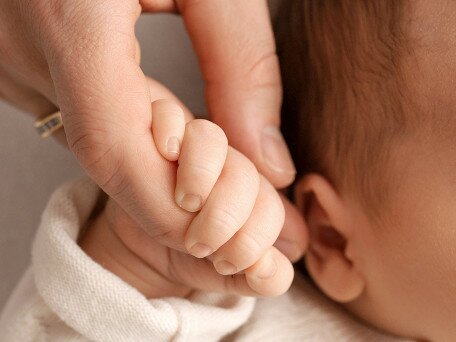Transition to Parenthood: Testing the Influence of Emotional Regulation on Responsive Parenting through a Moderated Mediation Model
- 項目計劃:
- 優配研究金
- 項目年份:
- 2021/2022
- 項目負責人:
- 劉怡虹博士
- (幼兒教育學系)

The early postpartum period marks a challenging time for first-time parents during which they are confronted with the demands of providing quality caregiving and responsive parenting to ensure the well-being of their infants.
There is a growing body of research focusing on emotional regulation (ER) in parents because of its influences on child development. However, there is less research on the influence of a parent’s, particularly a father’s, ER during the transition to parenthood on his/her psychological and parenting adjustment as well as the consequential outcomes on his/her parenting behaviors. Specifically, important research questions remain, such as 1) What are the relations between prenatal ER and parenting during infancy? 2) Do postnatal depressive symptoms and parental efficacy mediate the relation between ER and parenting during infancy? 3) Do infant temperament and spousal support moderate the relation between ER and postnatal depressive symptoms and the relation between ER and parental efficacy? This study is among the first to examine the contribution of prenatal parental ER to responsive parenting as well as to analyze postnatal depressive symptoms and efficacy as mediators. The study will also look into infant temperament and spousal support as moderators in the relations between parents’ ER and parental efficacy/postnatal depressive symptoms by using a design with a sample of first-time parents in Hong Kong. Participants will be 330 pairs of first-time expectant parents recruited online as well as from one public hospital and one private antenatal clinic. At Time 1 (3rd trimester; variables assessed: ER and spousal support) and Time 2 (4 months postpartum; variables assessed: infant temperament, postnatal depressive symptoms, and parental efficacy), parents will be invited to complete a set of questionnaires. At Time 3 (nine months postpartum), parents will be invited to bring their infant to the Principal Investigator’s university for a recorded observation and a survey session to assess parental responsiveness and sensitivity. The findings will help inform evidence-based prevention programs and community-wide policies to promote the ER skills of expectant parents for positive parenting through increased efficacy and decreased depressive symptoms. By exploring the role of child and spousal characteristics in moderating the influence of ER on parental adjustment, we will also be able to strategically provide tailored parenting support and training, including the use of adaptive ER skills, to first-time parents of infants with difficult temperament and parents who receive low spousal support to handle their parenting challenges.








